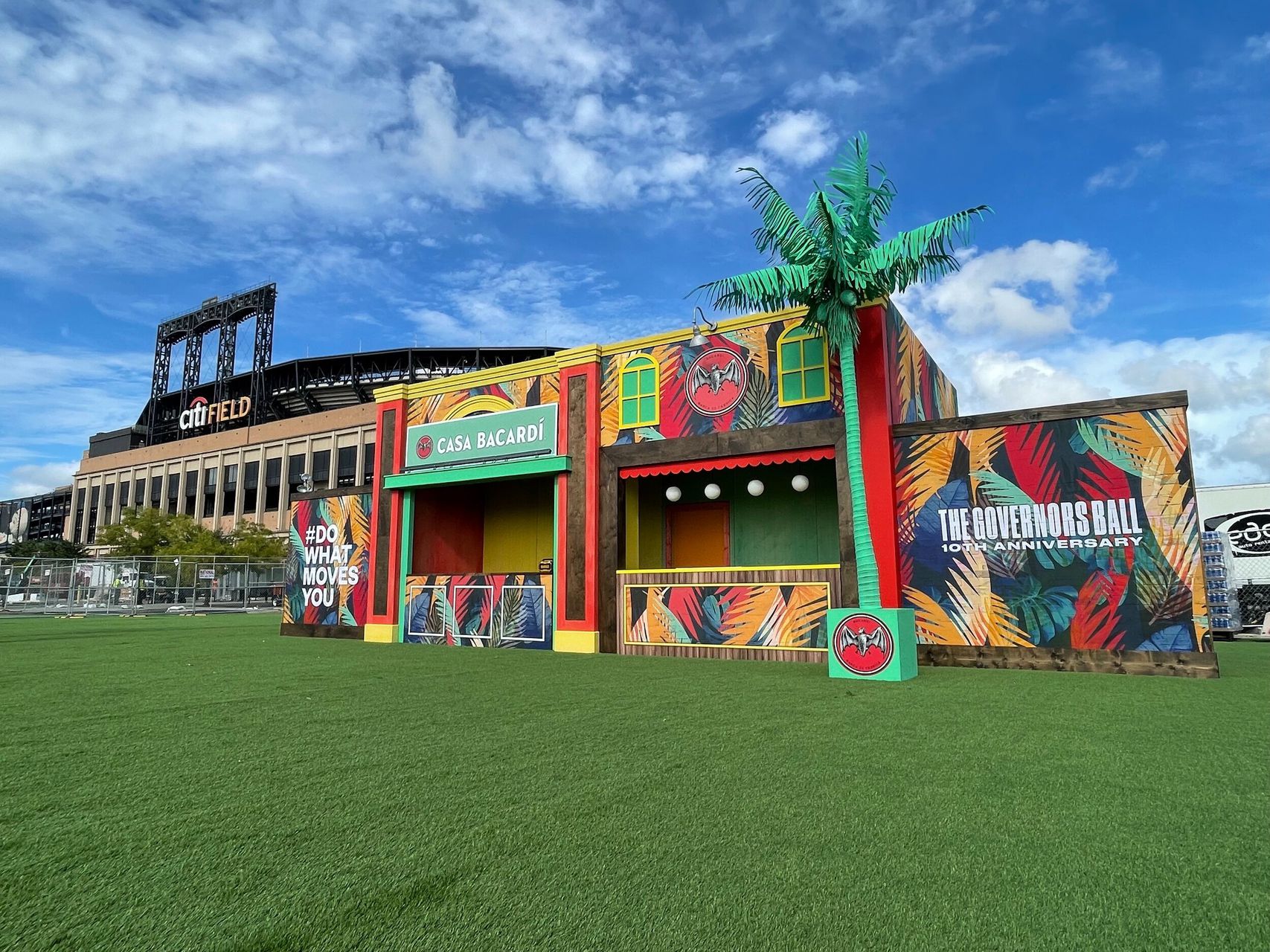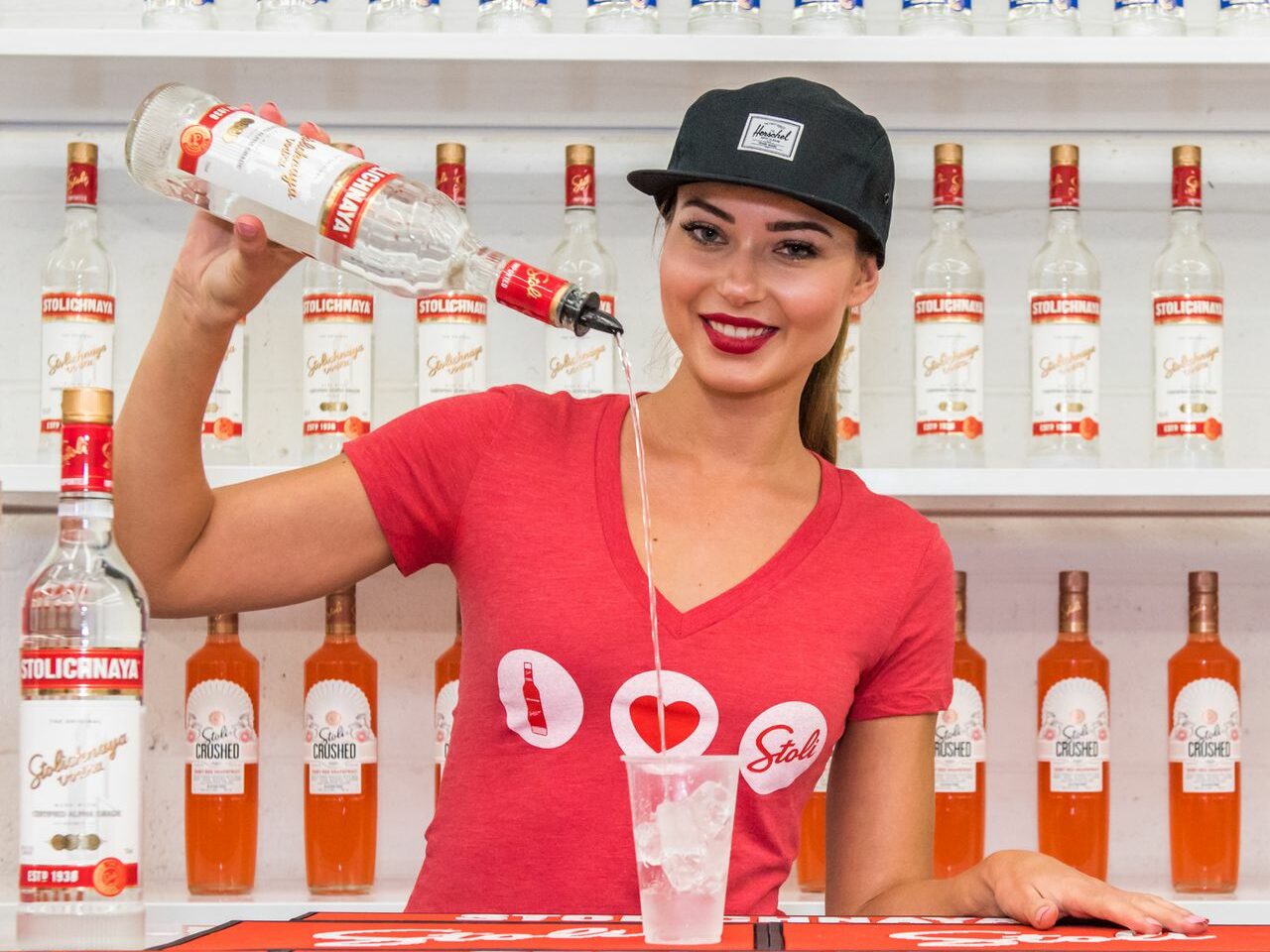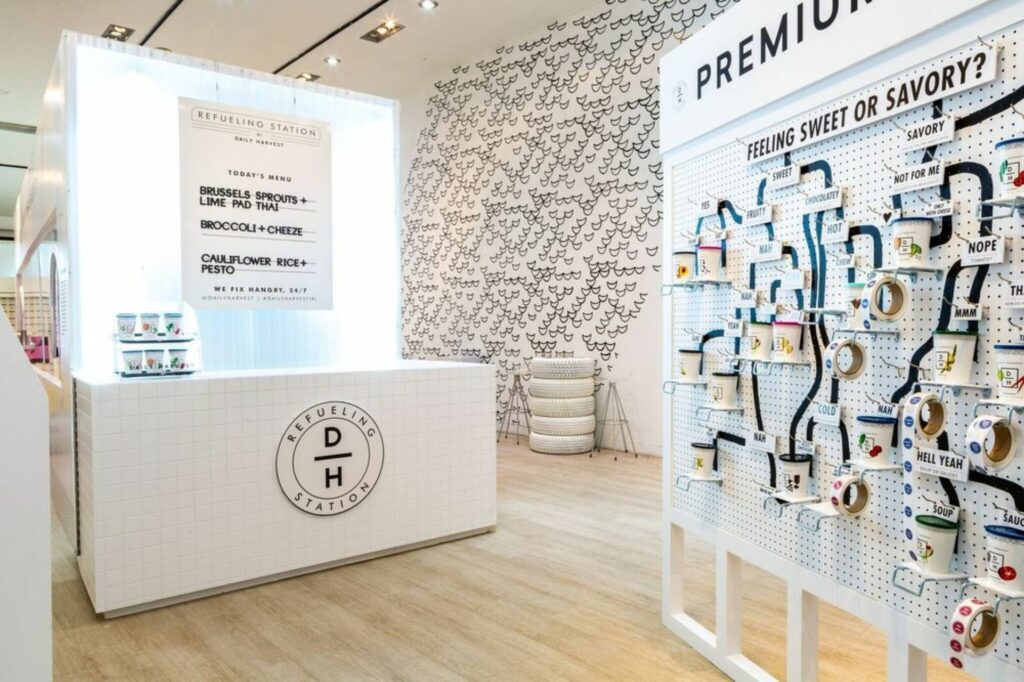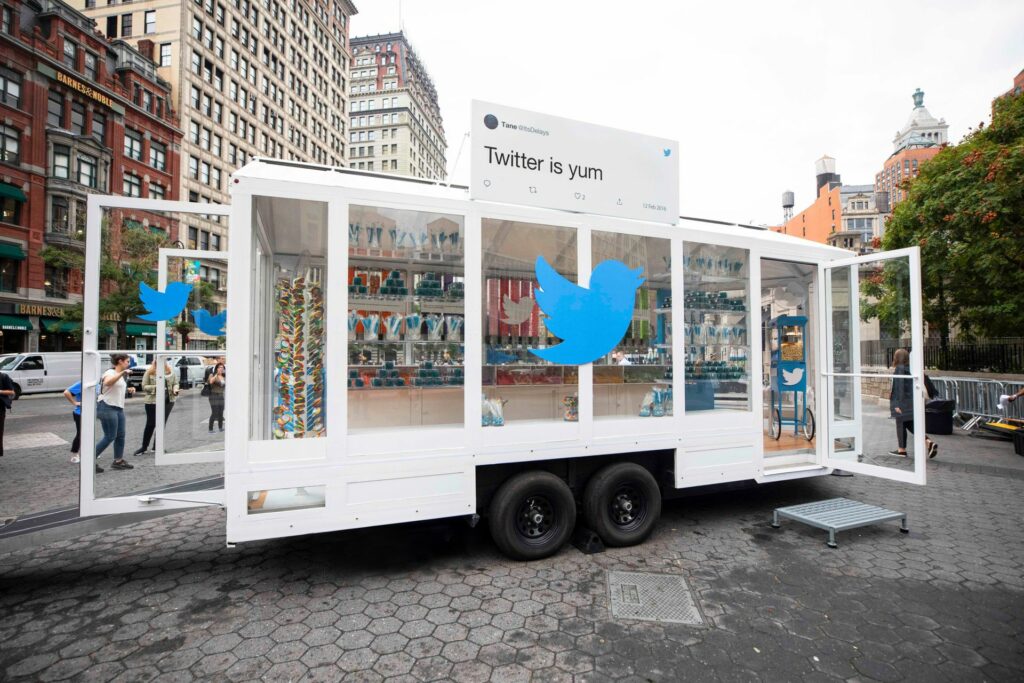
It’s a new year and despite the pandemic's best efforts, the (trade and road) show must, and will, go on. The origin story of field marketing as we know it began with Procter & Gamble’s pioneering strategies in the early twentieth century to market their soap. Over 100 years later, field marketing remains an important and integral part of businesses. Despite its old school origins, field marketing is very much a contemporaneous methodology, with field marketers using cutting edge tactics and technology to maximize the face-to-face brand experience. However, for many it begs the question: what is field marketing? Read on for The Vendry field marketing breakdown as you look to the year ahead.
Field marketing is often used in brand promotion jargon, but its scope and definition can confuse planners, marketers, and consumers alike. The Field Marketing Council defines it as “measurable, face-to-face brand development and customer relationship management through using highly trained people.” The Google Translate version: marketing IRL by talented people. It’s literally getting products “out in the field” in front of buying communities. Some field marketing campaigns can include events, conferences, road shows, webinars and virtual events (hi, Covid), fireside chats, roundtables, and more. Historically, field marketing was viewed as a much more one-way communication method of direct marketing, but these days with sophisticated tracking technology and real-time feedback opportunities it’s much more of a two-way dialogue between a brand and its audience. In general, field marketer responsibilities include, but are not limited to:

Even in our ever-increasingly digital age with virtual and hybrid events (what was life before Zoom?) field marketing remains a valuable modus operandi for any company or brand. Some of its myriad benefits:
Creates/Improves Positive Brand Perception:
In many cases field marketers will provide a consumer’s first impression of your brand. Making a good first impression always counts, whether it’s meeting a new client or launching a new product. Field marketing professionals are, as the Field Marketing Council says, highly trained to do just that, using meticulous research and data to reach a buying community.
In that same vein, an unfortunate truth when it comes to marketing is that in general the consumer base is more cynical than back in the day. Customers are savvier and more intelligent than ever when it comes to B2B marketing. By offering up an in-person representative to handle real-time queries for those looking for instant gratification or answers to their questions, your brand can break that cynicism down.
Builds Brand Awareness:
With field marketing you are physically able to connect with people about your brand in a way that even the most effective digital marketing can’t. There’s a lot of competition in the online space and with field marketing you can cut through a lot of that with targeted, on point engagement. An effective field marketing campaign — through robust social marketing and creative marketing events —will leave a lasting impression long after the booth closes down and the convention wraps.
Augments Sales Efforts:
With effective field marketing campaigns, you can either sell products on the spot or at least book a subsequent meeting and establish long-term relationships and partnerships. There’s a tangibility of seeing and experiencing something in-person. That can’t be replicated, no matter how hi-def a picture is. Case in point… when advertising types of booze it’s nice to be able to sample it, not just look at pictures. You can read about a new VR headset all say, but what beats trying it?
Grows Customer Relationships:
Field marketers are on the frontline of a brand’s promotion efforts, and therefore are often the first people your potential clients/consumers will meet. They forge not only relationships but get leads for your business. This goes together with sales efforts as well.
Gathers Consumer Insights:
The feedback loop with field marketing is meticulously data-driven but also provides specific, in person, anecdotal consumer reviews in a way you wouldn’t otherwise get. Field marketers can have conversations with consumers about a brand or product in an organic way. Online surveys and other digital feedback tools are still incredibly useful, but that face-to-face interaction is also invaluable to get real world insight

To maximize field marketing effectiveness, businesses often create a dedicated in-house Field Marketing Organization. Alternatively, brands and companies can outsource this work to dedicated field marketing agencies which sometimes fall under a PR firm or agency. Your Field Marketing Organization starter kit includes:
Field Marketing Manager:
The Field Marketing Manager is really the captain of the ship. Hiring, training, directing the field teams… the buck stops here. It’s the manager’s responsibility to track and assess company goals, determine objectives, and generally keep everything a well-oiled machine. People who make a career as a dedicated Field Marketing Manager are incredibly organized, on the ball individuals who are good at what they do. Field marketing managers are typically those students who not only request extra homework but go for the extra credit. They’re brilliant at what they do and keep tabs on anything from analyzing color psychology with marketing collateral to maintaining transparency with all the data. It’s part creative direction, part data analyst—a real intersection of skill sets, and their talent alone is usually worth the investment.
Field Marketing Representative:
These are essentially jack-of-all-trades within the organization. Their main objective is to be the liaison between sellers and buyers and driving brand awareness with face-to-face, on-site interaction with the consumers.
Street Team Representative:
The Street Team Rep(s) are your boots-on-the-ground. They’re tasked with everything from handing out fliers and products to crowds, to promoting a brand through official and personal social platforms. Street team representation can also take on a more literal interpretation. Think wrap advertising—also known as “carvertising” — (Red Bull, Bud Light) that you’ve seen driving around. Who is physically driving the car? Often times, street team representatives and brand ambassadors (see below) can be secured through staffing agencies if you don't have the manpower in-house.
Brand Ambassador:
The term Brand Ambassador often conjures the image of a celebrity endorsing or wearing a brand to high-brow events. While it’s true that celebrity representatives are incredibly effective and make an impactful statement, there’s been several successful brand ambassadorship programs for those who can’t afford (or just aren’t looking for) A-list boldface name representatives. These brand ambassador programs from famous companies are examples of how brand ambassadorship has become increasingly organic and creative. You don’t need a George Clooney endorsement to foster brand diplomacy, as nice as that is.

Field marketing activities can really be boiled down to five major areas:
1) Sales with Targeted Audience
Know thy audience. Create multiple buyer personas complete with demographic and firmographic data to start the field marketing process. What are their job profiles, their challenges, what are they trying to achieve? These personas will guide all aspects of the field marketing strategy.
2) Merchandising for Positioning Marketing Materials
This speaks to the actual placement and positioning in the retail environment of marketing materials. (Think shelf barkers and posters.) This category also relates to tracking and evaluating the brand’s performance in a retail outlet and developing relationships with the retailer.
3) Audit to Record the Information
Not the IRS kind of audit! In field marketing an audit is number-crunching reporting and recording of a brand’s marketplace position in stores. It can also help track competitor’s distribution data to compare performance and keep ahead of the curve. This process can reinforce effective tactics already in place or it can foster more effective strategizing for future marketing. It provides real-time insights on ROI. By having trained field marketers—whether it’s in-house or an agency—taking this data analysis on it can help alleviate this pressure on your business so you can focus more on the creative.
4) Sampling and Demonstrating
This is pretty straightforward. A field marketer will demonstrate how a product works (or wears, etc.) and then give a consumer the same opportunity. However, it’s important to use this field marketing tactic in an optimum environment with a target audience, which loops back to the importance of targeting your audience. This strategy can also open the door to brand ambassadorships down the line. (For food and beverage brands this usually manifests in the form of samples or giveaways.) If you’re introducing a new wine label, find a prominent sommelier with an online presence to run the tasting. You can also have video of the behind-the-scenes process on an iPad that goes into making the drink. There’s a lot of possibilities here.
5) Experiential Marketing, Events and Roadshows
In this case experiential and interactive are synonymous. You can have fun with this aspect, and in a variety of venues. A major goal is to keep your target audience at your booth/area for as long as possible, rather than a casual and brief stop by. Videos, touch screens, demonstrations–the world is your oyster when it comes to face-to-face engagement opportunities. Fun fact: did you know that the inaugural 1924 Macy’s Day Parade is one of the first concrete examples of experiential marketing? If it ain’t broke…

An effective field marketing strategy involves tactical implementation before, during, and after a conference, roadshow, and beyond. Among everything that goes into the creation of an effective field marketing strategy, here are things to keep in mind.
Think of field marketing and digital marketing in terms of a Venn diagram. At the center of things, both field marketing and digital marketing share the principles of relationship building, personalization, and audience targeting. The bottom-line goal is to bring the consumer and the brand together. Both fields require talent with specific skill sets. Then, there are pros and cons to each:
Field marketing technically has a more limited reach than digital marketing, but the advantages of connecting in person are multifold (builds brand awareness, augments sales efforts, grows customer relationships, gathers consumer insight).
Digital marketing is more cost effective in the immediate moment, but the long-term financial benefits of field marketing are potentially huge.
To that point, when thinking of your business marketing approach in 2022 it’s not an either/or with field marketing and digital marketing but both/and. These two approaches are mutually beneficial, symbiotic, and implementing both ultimately maximizes your brand’s reach.
The Vendry has been lucky enough to help connect marketing professionals across the country and bring their concepts to fruition, whether in-person or virtual. With our world increasingly becoming based in the digital universe—with or without Covid—field marketing has become more important than ever as a tactic to reach consumers and cut through the online noise. Creating a Field Marketing Organization in-house or contracting an agency is a worthy investment to consider when nailing down your 2022 budget to boost profits, build relationships, promote brand awareness, and increase engagement with buying communities. One takeaway we can all probably agree on with this pandemic is that we are craving more personal engagement and interaction in general. Field marketing does just that, and at the end of the day has taken an old school concept and made it cutting edge in 2022.